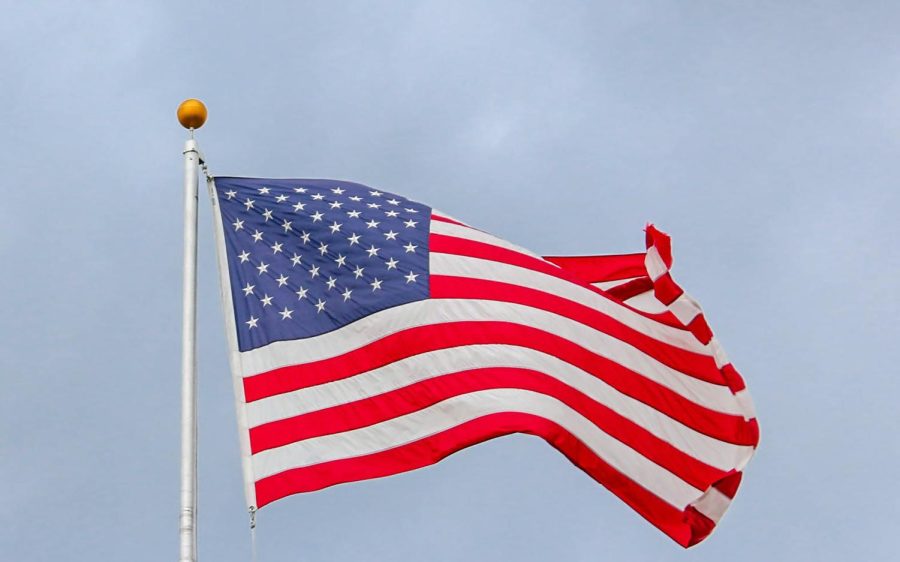Is religion a shield for politicians?
Many U.S. states have passed and continue introducing anti-LGBTIQ bills nationwide in the past months, from preventing drag queens from performing in front of children to banning medical treatment for trans youth.
This has created controversy and division because, in many cases, those who introduced the bills have touted their strong religious beliefs.
For decades, the separation of church and state in the U.S. has been a controversial topic. Many support that separation and point to the Constitution:
The first amendment states, “Congress shall make no law respecting an establishment of religion, or prohibiting the free exercise thereof.”
But many are also against it because they think the church is the only way to learn empathy and have balance in the country.
It is not a secret that the U.S. government and Constitution have a strong history of Christian domination and values infused into American politics and that, for decades, many of the principles that U.S. citizens learned at school and home came from it. In decades past, the majority had no issue with it because they had similar views, and the country lacked diversity. But times are changing, and today, things are different.
Data from Pew Research Center shows that Christians were almost considered normal in America a few decades ago. In the 1990s, around 90% of Americans claimed to be Christians. Nowadays, only about two-thirds of the country’s adult population holds the same religious identity. Between those raised Christians, the number dropped from 90% to 65% in 20 years.
Demographics also changed during those years. The last wave of immigrants in the United States between 1970 and 2012 brought people from all over the world, mainly from Latin America and Asia, bringing other religions and ethnicities. It is estimated that 46 million people were born outside the United States, about 13 percent of the general population.
Last but not least, there has been an increase in gender and sexual diversity in the past years. According to the global analytics and polling firm Gallup, one out of five U.S. adults identified as a member of the LGBTIQ community in 2022, more than double the percentage from 2012.
With all these factors, it is unfair to continue introducing and passing bills in the name of Christianity that only benefit those who are part of this religion.
“Religion and Morality are indispensable support of our Political prosperity,” George Wahington stated in 1796.
Many politicians like Washington think that the only way people can learn empathy and respect is through religion and that the lack of secularism is responsible for all the bad things happening in the country.
Just a few days ago, politician and New York’s mayor Erik Adams said, “Don’t tell me about no separation of church and state. State is the body. The church is the heart.” He seems to blame all the chaos in the city on the lack of faith.
Most of these kinds of comments begin after 1947 when Everson v. Board Of Education stated with a five out of four decision that under the first amendment, neither a state nor federal government could “Pass laws which aid one religion, aid all religions or prefer one religion over another”—creating the modern strict separation. And after this, politicians from left to right began to blame everything on the lack of faith, just like Adams did a few weeks ago.
But I have to disagree. There are many countries with a low percentage of religious people that are safe and healthy and many that are incredibly religious and dangerous.
Sweden, for example, is one of the least religious countries in the world but was ranked fifth by the U.S. News and World Report as one of the best and safest countries. Canada is also a not-so-religious country with a high percentage of safety and tolerance. What these two countries have in common is that both have well-developed public education systems full of diversity and inclusion, which most politicians in the U.S. don’t support. These countries also have free universal health care, making accessing mental health support easy for their citizens. And last but not least, these countries’ cultures don’t promote violence like the U.S. culture does. The U.S. is a country that is constantly involved in controversy and known for invading other countries for their resources.
When an individualist country invests in war before health and education and makes it easier for people to access guns than therapy, what can be expected of their citizens?
I am not saying that we need to eliminate religion in the country, but we must stop using it as a shield to protect us from negligence. Let us be honest. Saying that the lack of faith is responsible for everything happening in the country sounds more like an excuse for politicians and leaders not to be held accountable for their actions than anything else.


